Plastic Better Than Paper: Why Plastic Is Healthier for the Environment in the Long Term

There is a growing trend of consumers saying no to unsustainable products and business practices.
According to a recent study from IBM, 80% of consumers say sustainability is important to them, with 60% willing to reshape their shopping habits to reduce the environmental impact of their purchases.
And you don’t have to look far to find information about the devastating effects of single-use plastics. However, it is important to note that in some cases, plastic is better than paper.
We decided to crunch the numbers around pressing tofu and found that: reusable tofu presses decrease users’ carbon footprint and are cheaper than most other pressing alternatives in the long run.
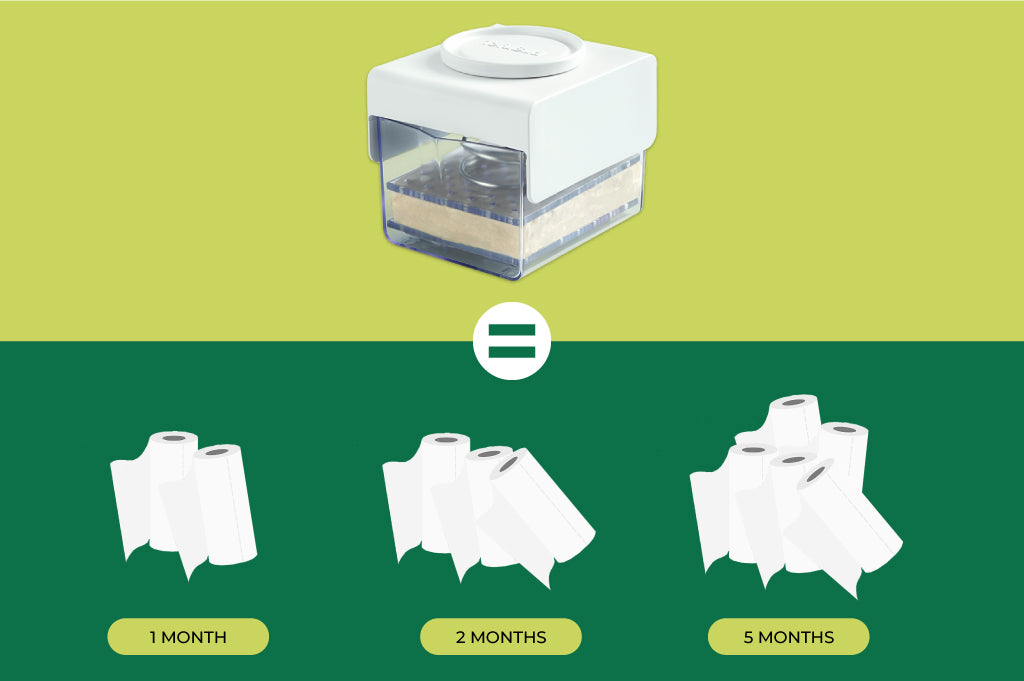
Since many people use paper towels to soak up excess water from their blocks of tofu, we wanted to compare the use of those disposable paper towels to the plastic used to create presses like the TofuBud tofu press.
Our research shows us that BPA-free, recyclable plastic tofu presses are far better for the environment than other options using disposable paper towels.
Why press tofu at all?
Tofu is often skipped over because people think it is just a soggy, tasteless soybean protein, but if you know how to prepare it, tofu can be flavorful and full of texture! Which makes it a great alternative to meat!
When using firmer types of tofu removing the excess water by pressing the tofu can make a world of difference in both taste and cooking quality.
The most common way to press the extra water out of tofu is to stack heavy things on top of a block of tofu while using a plethora of paper towels to soak up the water as it is slowly squeezed out.
While it may seem logical that a few paper towels is better than a plastic tofu press, it’s simply not the case. Our data shows that it is better for the environment if anyone regularly cooking with tofu invests in a tofu press that is made from high-quality plastic, like the TofuBud press.
It doesn’t take long to hit the carbon emissions break-even point!
The whole picture: single-use vs. multi-use plastics
Single-use plastics are only used once before they’re tossed - they’re rapidly filling our landfills, oceans, and harming the environment.
Not all plastic is created equal, though, and oftentimes multi-use plastics can replace single-use items for the greater overall good of the environment. According to National Geographic, no matter the material, anything that can be used multiple times is better for the environment than single-use items. Even reusable, non-woven polypropylene plastic bags become the eco-friendly choice after their 11th use.
So, like those reused bags, our tofu press, despite it’s plastic materials and production impacts, is greener than options using paper.
The break-even point
One ton of paper towels currently requires 20,000 gallons of water and 17 trees , not to mention the resources needed for production and distribution.
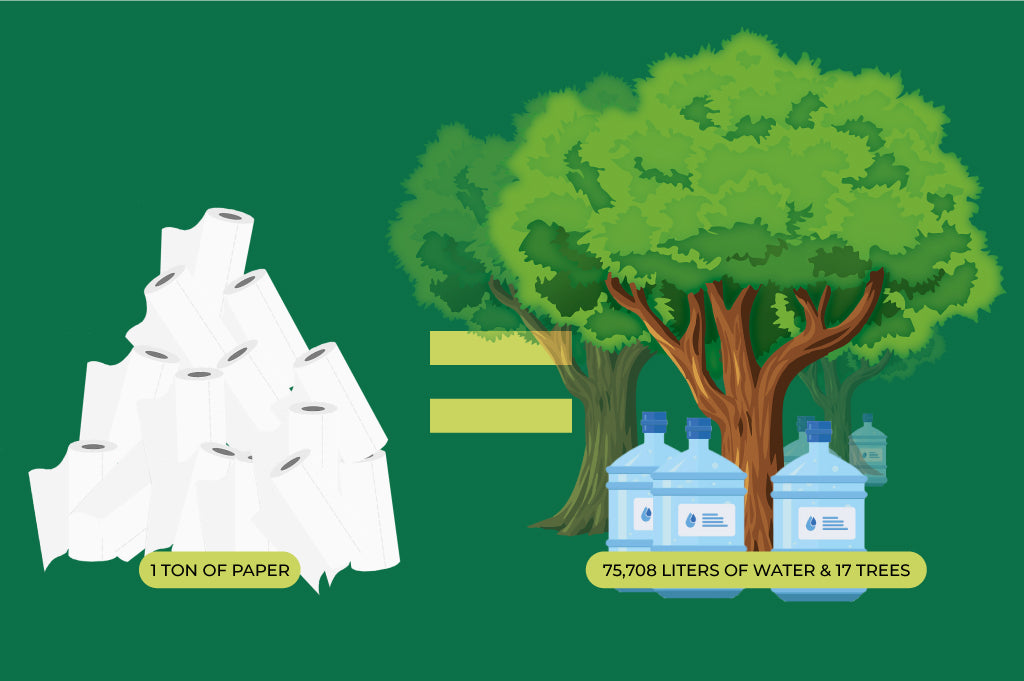
In the research we carried out, respondents used an average of 5 sheets of paper towel per tofu block. If a user presses tofu once, the greener option is paper towels, but most people who prepare tofu do so regularly.
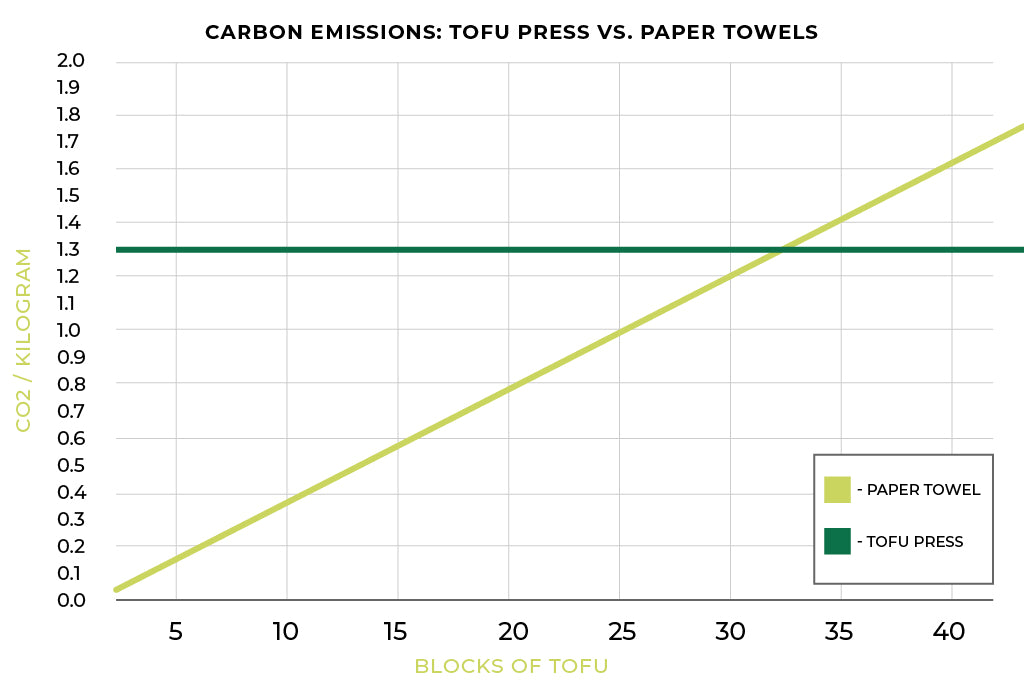
The CO2 emissions per kilogram of production hits a break-even point at 30 blocks of tofu. This means that after the 30th block of tofu, a tofu press is the eco-friendly choice.
Additional time and money savings
Beyond a plastic tofu press’s lower environmental footprint over its lifetime, investing in a tofu press can also save both time and money.
Time savings
In our surveys, on average, respondents needed to place heavy items on top of their tofu for 45 minutes. In comparison, respondents using a plastic tofu press only needed 15 minutes before their tofu was ready to use.
The chart below maps out exactly how many hours of food prepping time a year you can save. If you press 5 blocks of tofu a month, that’s 25 hours in food prep time saved!
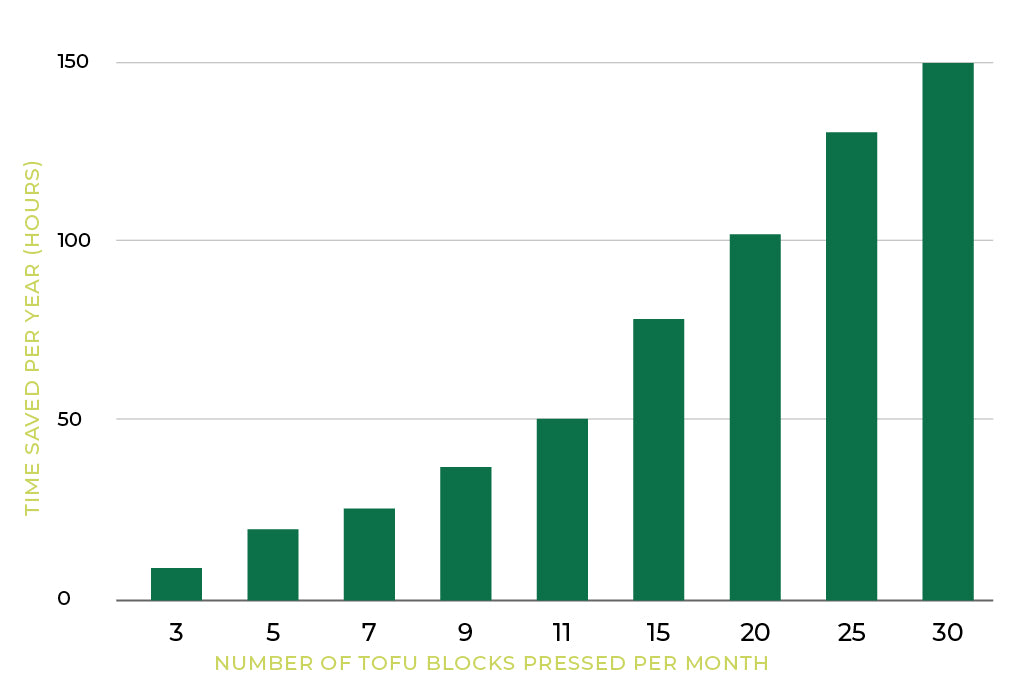
Source: Based on tofu press consumer's survey
Cost Savings
Though a tofu press has a higher up-front cost, investing in a tofu press is a fantastic way to save money in the long term.
Assuming the price of a paper towel roll is $2, you’ll start saving yourself money within the first year or two depending on how much tofu you press.
With proper care a high-quality tofu press should last for years. A plastic tofu press will quickly pay for itself with regular use.
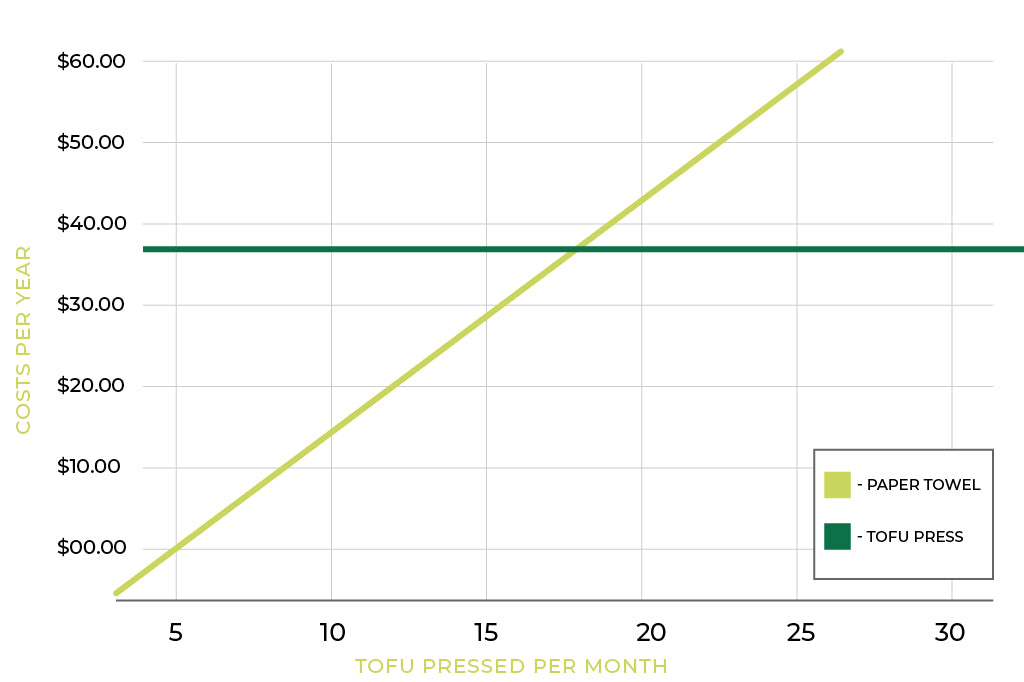
Estimated ratio based on paper towel price of few main US retailers
Is a plastic tofu press worth it?
Sustainability may look a lot different than we originally imagined, but when it comes to taking care of our planet and making the world a better place we have to go with the numbers.
It’s time we all started looking at the long term impact of all of our decisions.
Those 5 paper towels you use to soak up water today may not be so bad, but how many paper towels are you using in a month? In a year?
Plastics can be sustainable. When you invest in high-quality items you use regularly, the carbon footprint can quickly be negated by the amount of disposables you no longer need.
And you never know, you may just find some shortcuts and money savings along the way!
Better Tofu is
One Click Away


